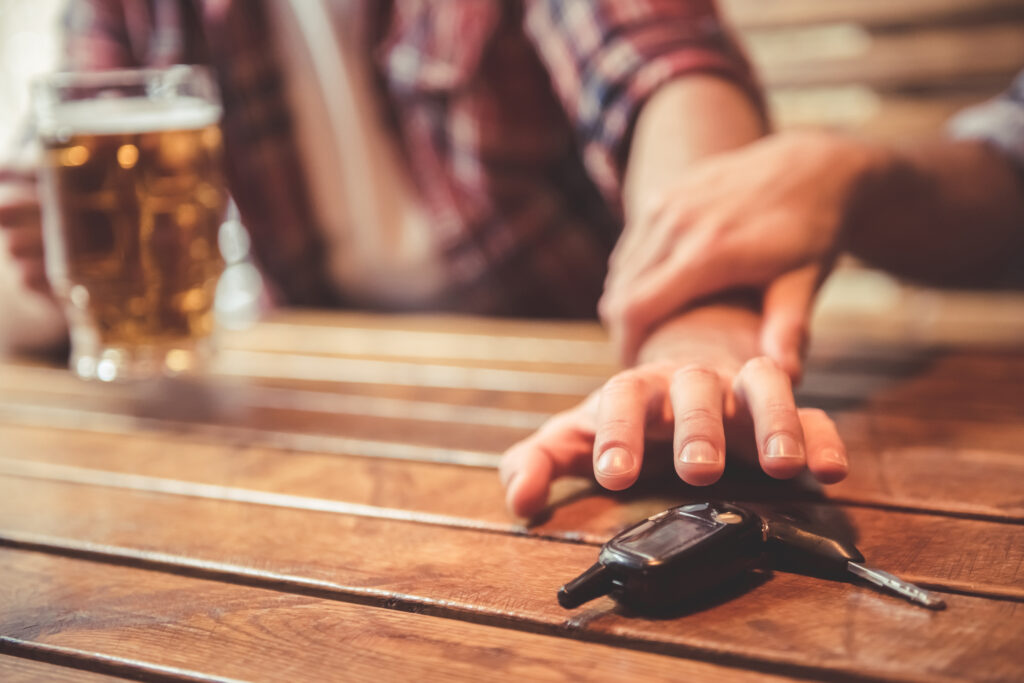While some states use the terms DUI and DWI interchangeably, Colorado draws several key distinctions between DUI and DWAI, most notably the severity of the impairment and the associated penalties. Understanding the difference between the two is essential for anyone facing charges in either category, as it can influence legal outcomes and personal repercussions.
What’s the Difference Between a DUI and a DWI?
In the United States, the terms DUI (driving under the influence) and DWI (driving while intoxicated OR driving while impaired) are often used interchangeably; however, their meanings can vary on a state-by-state basis. Some states, like Colorado, make clear distinctions between the two terms, while others may use them synonymously. Typically, DUI refers to driving with a BAC (blood alcohol content) of 0.08% or higher or when a person is impaired by alcohol or drugs to a degree that their ability to drive safely is significantly compromised. DWI, on the other hand, often refers to a lower level of impairment or intoxication.
However, Colorado does not use “DWI” as a formal charge. Instead, the state uses DUI to refer to cases of significant impairment and DWAI (driving while ability impaired) to address instances where a driver’s BAC is between 0.05% and 0.08% or when the impairment is less severe but still affects their ability to drive. This distinction is essential for understanding the charges you may face if arrested for impaired driving in Colorado and highlights why consulting a DUI lawyer in your area is crucial for navigating your case.
Legal Definitions of DUI and DWAI in Colorado
In Colorado, DUI and DWAI are defined based on the driver’s level of impairment.
- DUI (driving under the influence): A driver is charged with DUI if their BAC is 0.08% or higher, or if they are impaired by alcohol or drugs to a substantial degree. This charge indicates significant impairment, suggesting that the driver had lost the ability to drive safely.
- DWAI (driving while ability impaired): DWAI applies when a driver’s BAC is between 0.05% and 0.08%, or if their ability to drive is somewhat impaired by alcohol or drugs. While still unsafe, the impairment is less severe than in a DUI case.
The key difference here lies in the degree of impairment. DUI reflects a higher level of impairment, while DWAI involves milder impairment that still affects driving ability. Understanding these terms is vital when facing charges, which is why consulting a DUI defense attorney is essential.
Penalties for DUI vs. DWAI in Colorado
DUI Penalties
- First offense: A first DUI conviction can result in jail time, hefty fines, a license suspension, and the requirement to install an ignition interlock device.
- Subsequent offenses: For repeat DUI offenses, penalties increase substantially, with longer jail sentences, higher fines, mandatory alcohol education programs, and extended license suspensions all on the table.
DWAI Penalties
- First offense: The penalties for a first DWAI are generally less severe than for DUI, involving milder fines, community service, and no license suspension.
- Repeat offenses: However, repeat DWAI offenses carry harsher penalties, which can approach DUI-level consequences, including longer license suspensions and mandatory education programs.
Understanding the penalties for each charge is critical, and an experienced DUI lawyer can help navigate the legal process and work toward the best possible outcome.
Why You Need a DUI Defense Attorney
DUI and DWAI cases in Colorado are complex and can have serious, long-term consequences. Even a first offense can lead to severe penalties, affecting your driving privileges, criminal record, and future. Navigating these charges without expert help can be overwhelming.
An experienced DUI attorney understands the nuances of impaired driving laws and can challenge aspects of the case, such as the legality of the traffic stop or the accuracy of field sobriety tests. A skilled DUI defense attorney can also negotiate to reduce charges or penalties, potentially avoiding harsh outcomes like jail time or license suspension.
A local DUI lawyer familiar with the Colorado courts system can provide personalized representation and increase the chances of a favorable outcome. Having a knowledgeable attorney by your side is crucial in facing DUI or DWAI charges.
When selecting a DUI lawyer, consider the following factors to ensure effective representation.
-
- Specialization in DUI and DWAI cases. Choose a lawyer with experience handling DUI and DWAI charges. Their knowledge of the laws and legal strategies specific to impaired driving cases can make a significant difference in the success of your case.
- Local knowledge. Hiring a local DUI lawyer offers the benefit of regional expertise. A lawyer familiar with the area’s courts and legal practices can provide valuable insight and help you navigate the system more effectively.
- Someone you can trust. Be sure to select a DUI defense attorney who you feel comfortable speaking with about your case. The attorney-client relationship is built on trust, honesty, and open communication. Hiring someone who you can develop a strong, trusting relationship with can make the challenging process of facing criminal charges more manageable and lead to more positive outcomes in court.
If you are looking for a skilled DUI attorney, Suro Law can help. With over 30 years of legal experience in the state of Colorado, David Suro is the resource you need to help you navigate your case with confidence.
DUI vs. DWI in Colorado: Key Takeaways
In Colorado, DUI involves significant impairment (BAC of 0.08% or higher), while DWAI applies to milder impairment (BAC between 0.05% and 0.08%). Understanding these distinctions is key when facing impaired driving charges.
Given the complexities of impaired driving cases, having an experienced DUI lawyer is essential. A skilled DUI defense attorney can provide tailored advice and help minimize penalties. If you’re facing charges, you’ll want to find a DUI lawyer near you as soon as possible, so they can help you mount a strong defense.
References
https://bha.colorado.gov/for-people-in-colorado/information-for-people-with-a-dui-or-dwai
https://surolaw.com/criminal-defense/dui-dwai/
https://www.nhtsa.gov/risky-driving/drunk-driving
https://leg.colorado.gov/content/driving-under-influencedriving-while-ability-impaired
https://www.law.cornell.edu/wex/driving_under_the_influence_(dui)
https://dmv.colorado.gov/the-dui-process
https://leg.colorado.gov/bills/hb17-1288
https://leg.colorado.gov/sites/default/files/colorado_drunk_driving_laws_-_colorado_law_summary.pdf
https://bha.colorado.gov/for-people-in-colorado/information-for-people-with-a-dui-or-dwai
https://surolaw.com/criminal-defense/
https://my.clevelandclinic.org/health/diagnostics/22689-blood-alcohol-content-bac

